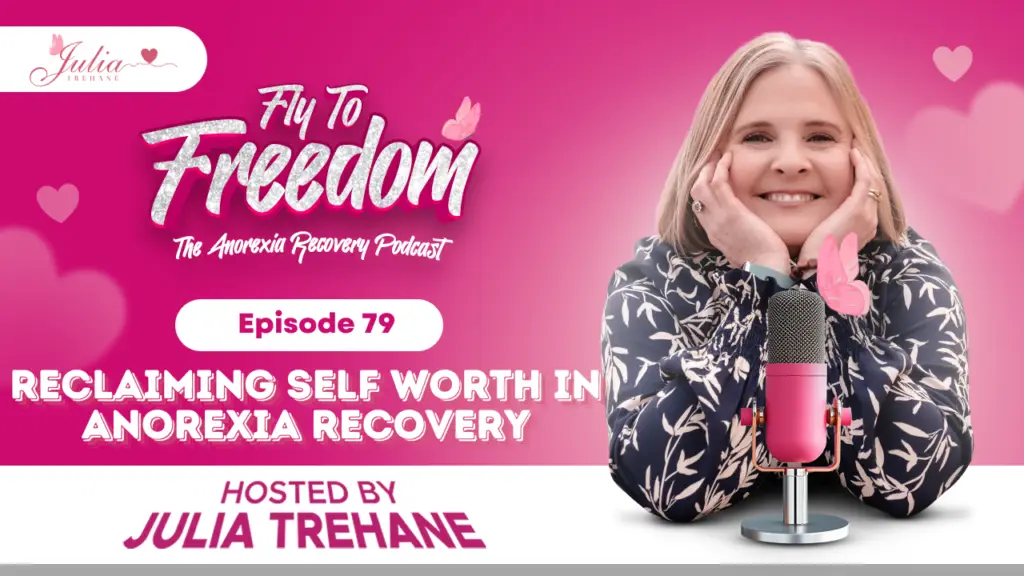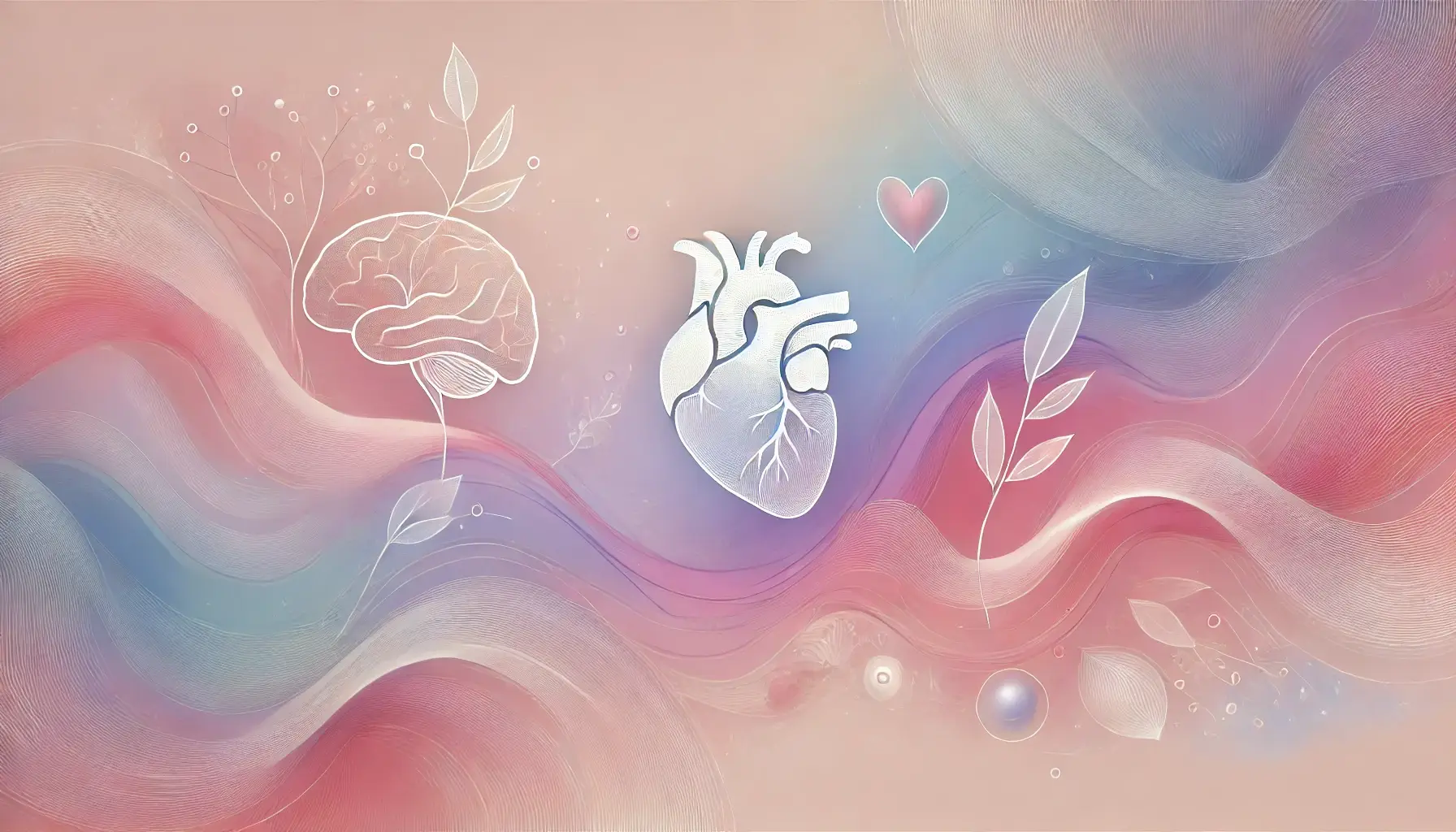We’ve all felt it at some point—that nagging voice inside that whispers, “You’re just not good enough.” For those in anorexia or eating disorder recovery, this mindset can feel like a constant companion. But here’s the good news: you’re not stuck with it. The belief that you’re inadequate is something that can be rewired, both emotionally and neurologically.
In this blog, we’re going to explore how the brain develops these harmful thought patterns, the science behind them, and most importantly, practical strategies to overcome them. Ready to take back control of your self-worth?
Why Do We Feel ‘Not Good Enough’?
It all starts early. As babies, we’re born with a sense of deserving. When we need something, we ask for it. Simple. But over time, conditional love from our parents, teachers, and society sends a different message: we’re only valuable if we achieve certain things—like getting good grades or looking a certain way. This conditional regard is what sets the stage for perfectionism and feelings of inadequacy.
According to conditional regard theory, when you receive praise only for certain behaviors or accomplishments, you begin to tie your self-worth to external validation. This can be a breeding ground for perfectionism, which has been scientifically linked to eating disorders like anorexia.
The Neuroscience of Negative Thinking
Our brains are fascinating organs, but they have a downside: they love to focus on the negative. Known as the negativity bias, this ancient survival mechanism kept our ancestors alert to threats like predators. Unfortunately, in today’s world, it means we often hold onto criticism and mistakes more than positive feedback.
Research shows that individuals with eating disorders are particularly prone to rumination, where the brain replays negative thoughts over and over again. For someone with anorexia, this might manifest as, “I’m not thin enough,” or “I’ll never be good enough.” This reinforces a vicious cycle of self-criticism, perfectionism, and restrictive behaviors.
Neuroplasticity: Rewiring Your Brain for Self-Worth
Here’s where the magic happens: neuroplasticity. Neuroplasticity is the brain’s ability to rewire itself by forming new neural connections. This means that even if you’ve spent years feeling inadequate, you have the power to change those thought patterns.
The science behind it is simple: the more you repeat a thought, the stronger the neural pathway becomes. So, if your brain constantly tells you that you’re not good enough, that pathway will become stronger. But here’s the exciting part: you can weaken that negative pathway and strengthen new, positive ones by practicing compassionate self-talk and gratitude.
Research on Cognitive Behavioral Therapy (CBT) supports this. CBT, often used in treating eating disorders, helps individuals recognize and challenge their negative thought patterns, allowing for healthier, more balanced thinking.
Journaling: Your Secret Weapon for Recovery
One of the most effective tools for rewiring your brain and overcoming feelings of inadequacy is journaling. It’s not just about writing down your thoughts—it’s about getting to know yourself better, tracking progress, and reflecting on how far you’ve come. When you journal regularly, you’re giving yourself the space to challenge those harmful beliefs and replace them with healthier ones.
Think of it this way: when you write down a negative thought like, “I’m not good enough,” and then actively reframe it with, “I’m doing the best I can, and that’s enough,” you’re retraining your brain. Over time, this simple exercise can lead to profound changes in how you see yourself.
I’ve written more about the power of journaling in this blog post, where I walk through my own daily practice. Trust me, it’s a game-changer.
The Role of Self-Compassion and Gratitude
Self-compassion is one of the most transformative tools you can use in your anorexia recovery. It’s about treating yourself with the same kindness and care you’d offer a friend. Research by Dr. Kristin Neff highlights that self-compassion reduces anxiety, stress, and feelings of inadequacy by encouraging a more balanced and forgiving view of yourself. This practice is especially important in eating disorder recovery, where the internal critic can be extremely harsh.
But here’s the kicker—self-compassion isn’t just about feeling good, it’s about creating a sustainable, healthy relationship with yourself. By offering yourself grace during challenging moments, you create room for growth and resilience.
Journaling for Self-Compassion:
A great way to practice self-compassion is through journaling. When you take time to reflect on your thoughts and emotions, you become more aware of your inner critic and have the chance to challenge it.
Try these prompts:
- “What would I say to a friend who’s feeling the way I am right now?”
- “How can I show myself kindness today, even if I’ve made mistakes?”
- “What are three things I did well today, no matter how small?”
Journaling with these prompts can be a game-changer. You’re actively challenging that critical inner voice and replacing it with self-compassionate dialogue.
Gratitude: Shifting Focus to Positivity
Gratitude is another essential part of reworking the ‘not good enough’ mindset. Why? Because when you practice gratitude, you’re training your brain to focus on what’s going right rather than what’s going wrong. Gratitude helps to counteract the negativity bias by bringing your attention to positive experiences and achievements, however small they may seem.
Studies show that people who practice gratitude experience better mental health, lower levels of stress, and higher overall satisfaction with life. In anorexia recovery, where it’s easy to focus on perceived failures, shifting to gratitude can be incredibly powerful.
Journaling for Gratitude:
Incorporating gratitude into your journaling practice is simple but effective. It doesn’t have to be time-consuming or complicated.
Here are a few gratitude-focused prompts:
- “What are three things I’m grateful for today?”
- “What is one small win I can celebrate today, even if it feels insignificant?”
- “Who in my life has supported me recently, and how can I show appreciation?”
By spending just a few minutes each day reflecting on what’s going well, you’ll begin to notice a shift in your mindset. Gratitude journaling rewires your brain to see the good, helping you feel more balanced and empowered in your recovery journey.
Combining Self-Compassion and Gratitude
Now imagine combining both self-compassion and gratitude in your journaling. This dynamic duo has the power to completely transform how you relate to yourself and the world. When you’re grateful for your efforts, however small, and kind to yourself in moments of struggle, you create an environment where true recovery can flourish.
Try this dual prompt:
- “What is one thing I’m grateful for today, and how can I be kind to myself as I continue working towards my recovery goals?”
You can learn more about the power of journaling in recovery by checking out this blog post where I go over how I personally use journaling in my own daily routine.

This podcast episode compliments this blog perfectly. Have a listen by clicking the image
Ready to Transform Your Recovery Journey?
If this resonates with you, I’m here to help. In my Gold Standard 1:1 Coaching, I work with you directly to build self-compassion, resilience, and a sense of worth that doesn’t rely on external achievements. Together, we can rewire those negative thought patterns and focus on your growth, step by step.
Not ready for coaching? No problem. I offer plenty of free resources to support your recovery, including my daily mantra emails, a free recovery guide, and my podcast where I discuss these topics in more depth. You can sign up for my daily mantras and recovery guide at the bottom of this post.
And don’t forget to follow me on Instagram for more daily encouragement and tips @juliatrehane.
If this blog helped you, I’d love for you to share it —your journey might just be the encouragement someone else needs today.

